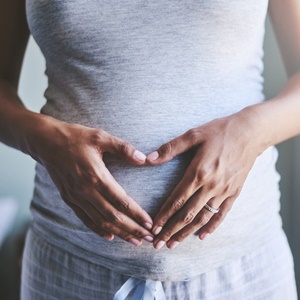
Pregnancy is normally a happy time of your life, but bear in mind that there are many changes taking place in your body – including your pelvic floor and bladder.
When you are pregnant, you will receive advice from many people who have been there themselves, but urinary leakage during and after pregnancy is not something women often talk about.
Why is urinary incontinence common during pregnancy?
Leaking urine when coughing, sneezing and laughing during pregnancy is common – this leakage is called stress incontinence. The reason why it happens is because of the pressure your unborn baby places on the pelvic floor muscles, urethra and bladder. This type of stress incontinence usually goes away after your baby is born, and you should visit your doctor if leaking occurs after six weeks or more of giving birth.
Urinary incontinence after pregnancy
Pregnancy, the type of delivery and the number of children during a woman’s life all may increase her risk of incontinence.
In some cases, vaginal birth and a Caesarean section can have an effect on the pelvic floor muscles, which might cause incontinence after pregnancy as well and therefore have a much higher risk of stress incontinence than those have never given birth.
Loss of bladder control after pregnancy can be caused by pelvic organ prolapse that can sometimes occur after childbirth. Your uterus is held inside your body with a collection of muscles, tissue and ligaments that form the pelvic floor. These muscles and ligaments are weakened through childbirth and during pregnancy. In some cases, especially during difficult labour, the cervix might drop towards the bottom of the vagina and place pressure on the pelvic floor, which leads to stress incontinence.
In some cases, the bladder may also sag and cause the opening of the uterus opening to stretch. This is known as cystocele.
When you do experience urinary incontinence that doesn’t clear up within six weeks after pregnancy, you should consult your doctor as you need to understand the cause of the incontinence to help determine the treatment plan, whether surgical or non-surgical.
Keep your bladder and pelvic floor healthy and strong during pregnancy
There are a number of ways to keep your bladder healthy during pregnancy:
- Drink well: spread your drinks out during the day, don’t overfill your bladder and don’t become dehydrated, as this can irritate your bladder more, which can lead to more leakage.
- Cut down on sugary drinks, fizzy drinks and juice, as well as caffeine as these may irritate the bladder.
- Eat plenty of fibre to keep your bowel movement regular. Constipation can be a side effect of pregnancy and can also increase your risk for urinary incontinence as there is now more pressure on your pelvic floor.
- Avoid regular heavy lifting during pregnancy as this can weaken the pelvic floor muscles.
- Do exercises that can strengthen the pelvic floor. See this guide.
- Aim for at least 30 minutes of exercise a day if your gynaecologist or doctor has cleared you. This can help combat constipation.
- Don’t hold in urine – go to the toilet as soon as you feel the urge to urinate.
Image credit: iStock




 Publications
Publications
 Partners
Partners










